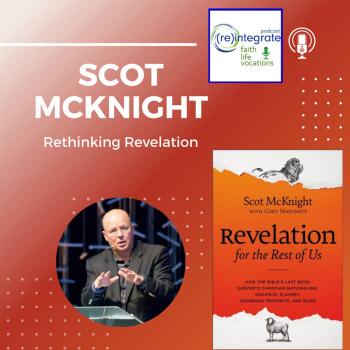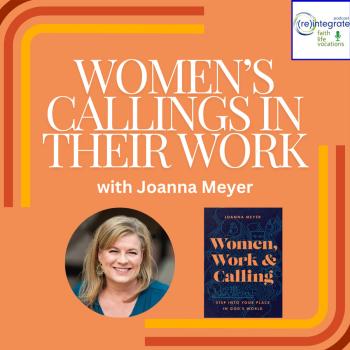Bob Rognlien, the Director of 3DM West, wrote a post today at Discipling Culture entitled “What is the Context of Biblical Discipleship?” He and his wife Pam lead immersion experiences in the Holy Land, where they see how life was (and is still is) lived in a different context from us here in the United States. He writes,
“When we visit places like Nazareth, Capernaum, and Chorazin we see the homes people inhabited in biblical times were designed for multiple nuclear families to live together, sharing a common life and vocation.
The Old Testament word for this kind of extended family life is ‘beth.’ The New Testament word for this is ‘oikos.’ No one in the ancient world would even consider living as an individual or a nuclear family; it was far too difficult and dangerous. The purpose of the biblical beth and oikos was to protect and provide for the extended family.”
Let me bring this cultural point to our attention: In biblical times, people inhabited homes that were designed for multiple nuclear families to live together, sharing a common life and vocation. They lived together and they worked together.
Rognlien wants the church in the United States to model their congregational life on this extended family motif. The life there is much less individualistic. Extended families live together, work together, vacation together, etc.
Culture or Bible?
He makes some propositions based on his observations of life lived in the Middle East. But, the question that begs to be answered is this: How are these cultural-specific propositions transferable to us here in the United States? If we are not careful to nuance our answer to that, we will simply seek to transfer a culturally-specific lifestyle upon a different culture and call it “biblical.”
What caught my attention is that Rognlien says that “Oikos is the context of a biblical lifestyle.”
“Our closest friends here in Jerusalem are a Christian family who trace their ancestry back many centuries in this place. We have been friends for 30 years. Their home is designed almost exactly as the first-century homes we see in archaeological digs: multiple rooms and a kitchen built around a common courtyard where they cook and share life together.
They think of everything in the context of their extended family.
They live in the same buildings or in close proximity to each other. They own a restaurant and everyone in the oikos works as they are able to make it a success.
They take their vacations together. They face challenges, mourn losses, and celebrate victories together.”
I’ve been with young evangelical Christians who idealize this kind of life. They move into the same neighborhood together, they create shared spaces for living life together, and they target their neighborhood for service and evangelism. This is an exciting change for these folks, and they are excited at first to live like this. But here in our cultural context in North America, our work is seldom found in close proximity to our homes. We do not work with the people in our nuclear families, let alone our church families – our small group or our church congregation.
But here in our cultural context in North America, our work is seldom found in close proximity to our homes. We do not work with the people in our nuclear families, let alone our church families (that is, our small group or our church congregation). These young Christians get discouraged as things quickly change from their idyllic setting. One couple moves because of a career change or a job transfer to another city. Everyone is working to make ends meet and for those who are raising children, they find that the time they had when they were married without kids has been zapped.
Vocations are often Separate from Oikos
The people in America’s oikos (our spiritual family in the local church) all have their own specific skills and training, and are pursuing their own vocations (or callings) from God to do good work for the good of their community. Because of the blessing of living in an affluent society, many of us are able to pursue callings beyond a family business. We are not relegated to working in the family restaurant or the trade business that our family owns. Our callings, and thus our skills and training, are much more varied here in the United States. Many have spent four years (or much more for post-graduate work) and thousands of dollars on an education in a specific field in which they want to excel and make a difference. People in our local church families have careers doing everything from blue collar to white collar, from metal worker to doctor, and they have educations and trainings that are extremely different.
In other words, the Middle East is very different from the United States. If we are not careful, we might read Bob Rognlien as saying that we in the American church should emulate the oikos of biblical times by quitting our jobs and shirking our responsibilities as those called by God into specific individual vocations. After all, we should do all we can to live like they did back in biblical times (and how they still live in the Middle East).
I don’t think that is Rognlien’s point, but I have seen plenty of young church leaders who have adopted that point of view. They have not brought into their church model the importance of vocation and how God uses our individual callings to bring about his purposes in the world.
I can understand, and even agree with having, a suspicion or even disdain of individualism, for the American worldview places that above all else. But at the same time, we must remember that individuals are called by God to live for God in specific ways. The community of God does not obliterate one’s individuality, it only makes it fuller – it takes people from being independent to being interdependent.
What is the “biblical lifestyle?” Rognlien makes some great points.
“In our society so many nuclear families are isolated, trying to face the challenges of life and find meaning on their own. There is so much to be gained by relearning what it means to share life and mission with a spiritual family that extends beyond our own nuclear family.”
He makes a strong case for seeing our discipleship in terms of individual/nuclear family/extended family.
“The personal responsibility of each individual to respond to Jesus’ invitation is critical to becoming a disciple, but it is not the ongoing context of discipleship…. Discipleship is most effective when it happens in a small group (nuclear family) which is functioning as part of a mid-sized missional group (extended family). When people are discipled as part of an extended family they have built-in opportunities to put into practice the things their rabbi is modeling for them and training them to do.”
Amen to that! But when most missionally-minded young church leaders hear that there are “built-in opportunities to practice” missional living, they assume that this means primarily that the mid-sized missional group must do all their work as a Christian community together toward a shared mission. There is only some room for training and encouraging each individual in the group to live out their faith in and through their vocations.
Can we have small groups (nuclear families) and midsized groups (extended families) that are living in such discipleship that the principles of missional living are applied to the context in which the individuals in these groups spend the majority of their time? Can we become disciples that work in different places and pursue different careers for the glory of God? Or do we have to live only for the sake of the extended family’s common mission?
To be blunt, what I’ve seen is this: The desire for oikos has made some young church leaders thrust upon their flocks far too much extra burden.
Instead of primarily preparing the people in their flock to be missional and to grow as disciples by being faithful to their individual callings, they create a church culture that implicitly says, “Your work matters only if you can get them into our oikos. Real discipleship happens when we live life together on mission to this neighborhood that we’ve targeted. Your individual career is actually a stumbling block to biblical living.”
Am I wrong in saying that we need to be careful of making the mistake of confusing culture with the Bible? It has been proven that the “biblical lifestyle” crosses all cultures and is adaptable to each. Do we have to live like they do in the Middle East in order to live biblically?












